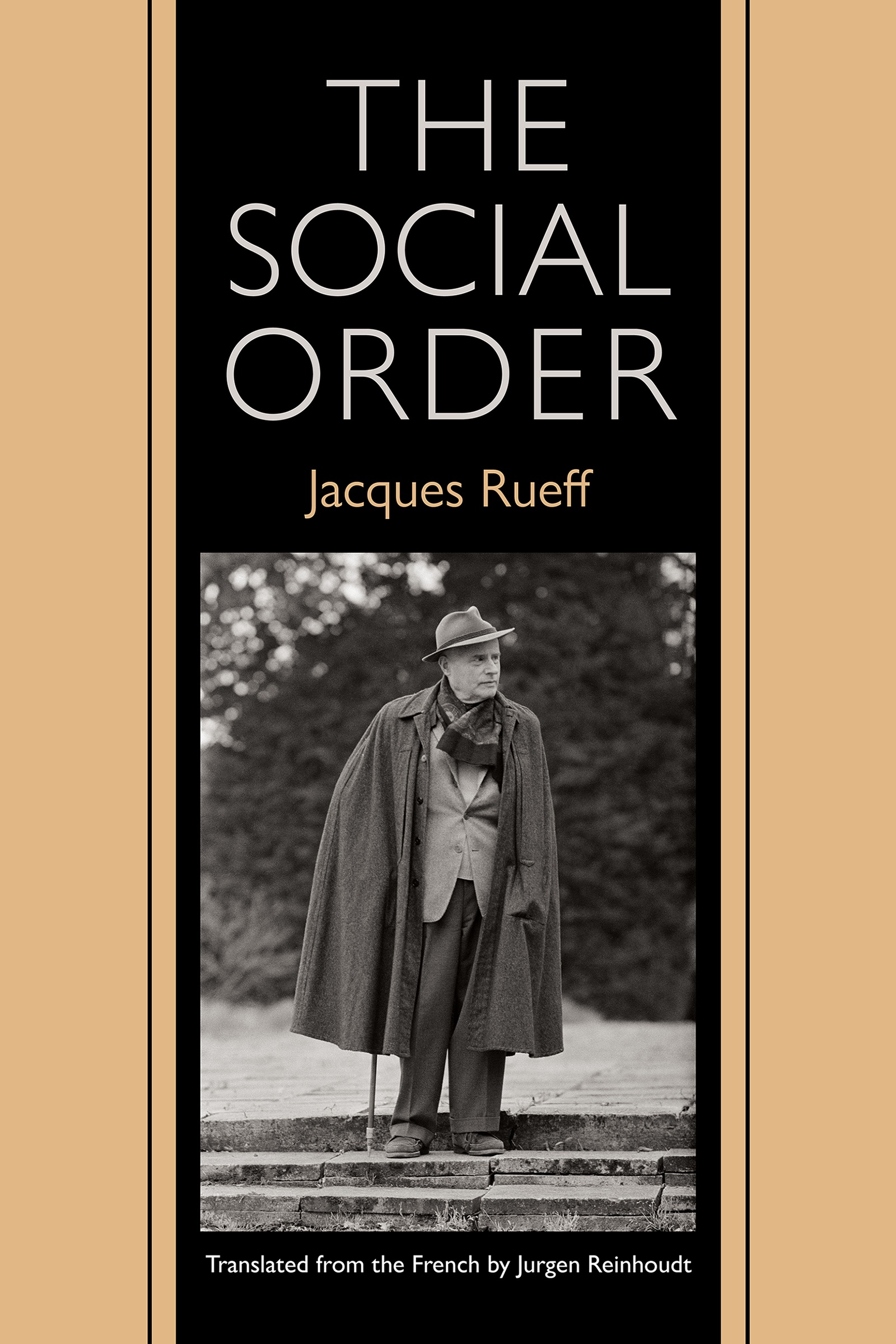The Social Order
By Jacques Rueff
Translated by Jurgen Reinhoudt
What is the connection between sound money and a stable society?
In The Social Order, Jacques Rueff—one of France’s most distinguished twentieth-century economists—delivers a penetrating analysis of how monetary and fiscal policy shape not only economic outcomes but the very fabric of social life. Originally published at a moment of great monetary upheaval and now available in English for the first time, Rueff’s magnum opus remains highly relevant for understanding today’s persistent inflation, debt crises, and economic disorder.
At the heart of Rueff’s argument lies the relationship between property rights and monetary integrity. When governments create by fiscal recklessness what Rueff calls false rights—claims to wealth unbacked by real savings—they distort prices and ultimately undermine the rule of law. By contrast, a regime of true rights, grounded in sound money and budgetary discipline, fosters economic order, legal predictability, and social harmony.
Rueff’s insights go beyond monetary mechanics. Drawing on law, psychology, and political theory, he argues that the erosion of monetary and fiscal order is not just a technical problem—it is a moral and political one. Central planning, inflationary financing, and fiscal profligacy do not merely misallocate resources; they corrode the very institutions on which a free society depends.
For readers concerned about today’s economic imbalances and their broader consequences, The Social Order is both a warning and a guide. Rueff’s elegant reasoning and principled defense of economic order and human freedom make this book a landmark contribution to the philosophy of money, capital theory, and constitutional political economy.
Jacques Rueff (1896–1978) was a French economist, statesman of finance, and outspoken defender of the gold standard. A trusted advisor to President Charles de Gaulle, he helped shape postwar French economic policy and served as a judge on the European Court of Justice. Known as “l’anti-Keynes,” Rueff was a leading voice for economic liberalism and fiscal prudence in twentieth-century Europe.
Jurgen Reinhoudt is a political scientist, researcher, author, and translator. He has been affiliated with Stanford University’s Hoover Institution and Harvard University’s Belfer Center for Science & International Affairs, and he is co-editor of The Walter Lippmann Colloquium: The Birth of Neo-Liberalism.
Details
Oct 2025 | 6 x 9 | 768 Pages
Translator's note, note to the reader, preface to the third edition, 34 figures, bibliography, index.
ISBNs
978-0-86597-936-9 Hardcover978-0-86597-937-6 Paperback

